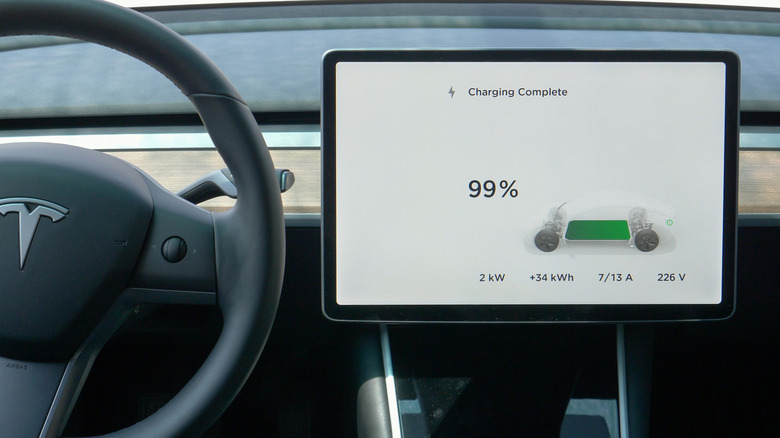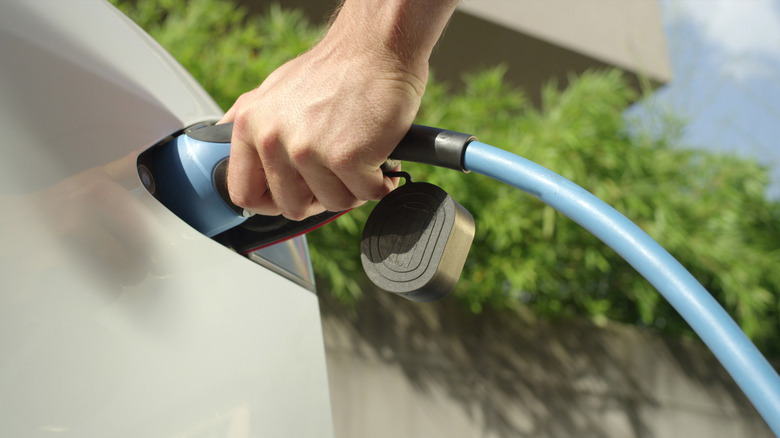How Much Does It Cost To Charge A Tesla At Home?
A clear and convenient benefit of electric vehicles like a Tesla is that you don't need to stop at a gas station to fuel up. You can simply plug into an available and compatible outlet, whether that's a charging station while you're out and about or at home. You can simply pull into your garage, plug your car in, and let it do its thing. With Tesla's Model Y becoming the first-ever EV to be the world's best-selling car and with more EVs coming to market, there are lingering questions. How much does it actually cost to charge a Tesla at home? Is it comparable to gas prices?
While not as unpredictable as ever-fluctuating gas prices, electricity costs do change and (more importantly) vary depending on where you live. Tesla has a neat little tool on its website that lets you estimate costs and visualize savings over what you'd pay for gas. A Tesla Model S, for example, driven 100 miles daily would cost about $4.48 to charge per day, saving you $12.48 in fuel. Fewer miles would cost less, more miles would cost more. Looking at comments on Reddit, the calculator prices are about right — $7 to $15 will get most Teslas to full.
@echainzz Is charging at home expensive? 🤔🚗⚡️ #tesla #teslacharging #ev
One TikTok user shared that his monthly electric bill went from $115 to $200 after he started charging his Tesla at home. That's an $85 bump and works out to just under $3 per day over a 30-day span. With average gas prices above $3 in the United States, that's a decent amount of savings. The next question to consider is how much it fluctuates from state to state.
How much does it cost to charge a Tesla state to state?
Researching the price of electricity in your area will get you a more accurate idea of the charging costs. In California, charging a Tesla to 80% capacity with a 60-kilowatt-hour battery will cost about $15, since the cost of 1 kilowatt is currently 31 cents. If you live in New York, 1 kilowatt costs slightly less at 26 cents, which means it costs roughly $13 to charge a 60-kilowatt Tesla battery from 0% to 80%. In Florida, with an average of 15 cents per 1 kilowatt, it only costs $7 to charge a Tesla.
If you do the math, that's about $210 per month at the low end and $450 per month at the high end over 30 days when charging daily. Exact numbers depend on how many miles are driven, how many times the battery is charged, and local electricity costs. If you're driving farther or charging more often, the costs are going to go up.
In addition, charging your EV or Tesla at public stations will cost a little more. Tesla's Superchargers are being updated to include other EVs, so that matters as more EV owners will be inclined to use them away from home. It's also important to note EVs have different battery capacities even within Tesla's own lineup, so you'll want to account for this in your costs. Furthermore, Tesla models have varying battery capacities, like the Model S Plaid or Cybertruck with 100+ kilowatt-hour batteries. In those cases, you might as well double the estimated costs. The federal EV tax credit is now dead, as well, so consumers won't save up front for buying an electric vehicle.

